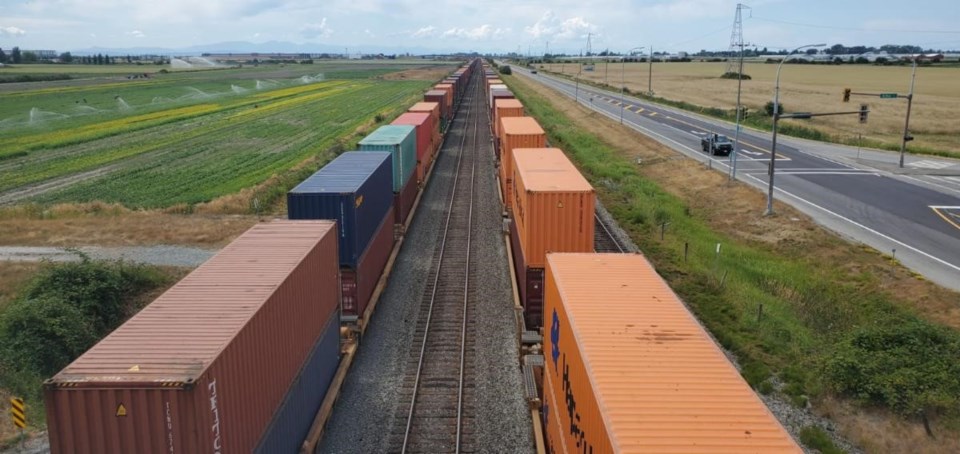The BC Chamber of Commerce said Thursday that the federal government should end the railway labour dispute “as quickly as possible,” saying that after months of negotiations, a new agreement is unlikely without intervention.
That intervention came quickly after federal Labour Minister Steve McKinnon announced later the same day that he’s sent the dispute to binding arbitration and orders railways to restart their locomotives, according to a CBC news report.
A prolonged disruption, “is untenable for our B.C.-based businesses” and will cause more damage to Canada’s reputation as a reliable trading partner, the chamber said in a release, Thursday.
It said that Canada’s railways move more than $1 billion of goods a day.
Following months of negotiations, shipments at Canadian National Railway Co. and Canadian Pacific Kansas City Ltd. ground to a halt early Thursday morning, threatening to upend supply chains still reeling from pandemic-related disruptions and a port strike last year.
Both railways proceeded with lockouts after talks broke down with the Teamsters Canada Rail Conference.
Delta South MLA Ian Paton said farmers in northeast B.C. are worried about being able to ship their grain at harvest time.
If there’s a long rail strike, grain won’t move to the coast for export overseas, he said earlier this week.
“This is very hard on their cash flow,” while farmers don’t have capacity to store large volumes of grain.
“Anytime it comes to food, wheat, barley, peas, different legumes … this has to be something that should be an essential service,” he said.
Grain that goes to the coast is used for local chicken feed or pet food, he noted.
Marko Dekovic, vice-president public affairs, with Global Container Terminals, said that they’ve been preparing for possible rail-service disruption since the initial strike date of May 22, before the review by the Canada Industrial Relations Board.
Dekovic said that total rail car supply to Deltaport and GCT’s Vanterm’s facilities has been improving in the weeks leading up to the rail stoppage.
“We have utilized our surge capacity through our semi-automated rail yard at GCT Deltaport, and worked … to maintain a well-controlled operation, minimizing berthing delays for vessels, and working around the clock to turn around … inbound rail cars as fast as possible,” he said. “Our terminals are now fluid, but any rail service outage greater than 48 hours will severely impact the fluidity.”
If the dispute drags on, “GCT is well positioned to have a rapid restart and rapid recovery due to our terminal’s ability to surge rail service capacity,” he said.
At Ocean Trailer, in North Delta, the last few weeks of the pending shutdown has increased orders for more rental trailers and empty chassis, that haul shipping containers, said Mack Keay, chief operations officer.
“It’s certainly boosted our rental utilization,” he said.
“Naturally, trucking becomes a little bit more busy as some things, not everything, would be transferred over the road …”
However, some trucking companies have freight that are stuck on the trains, but for the most part, it makes trucking busier, he added.
“It would be bad if went any more than a few days. We’d see empty shelves on every store,” Keay said.
The Canada Industrial Labour Board reviewed the dispute and decided this month that a labour disruption would not pose an immediate and serious danger to public health and safety and wouldn’t order the parties back to work.
– with files from Canadian Press




